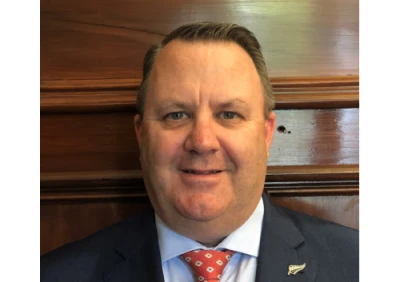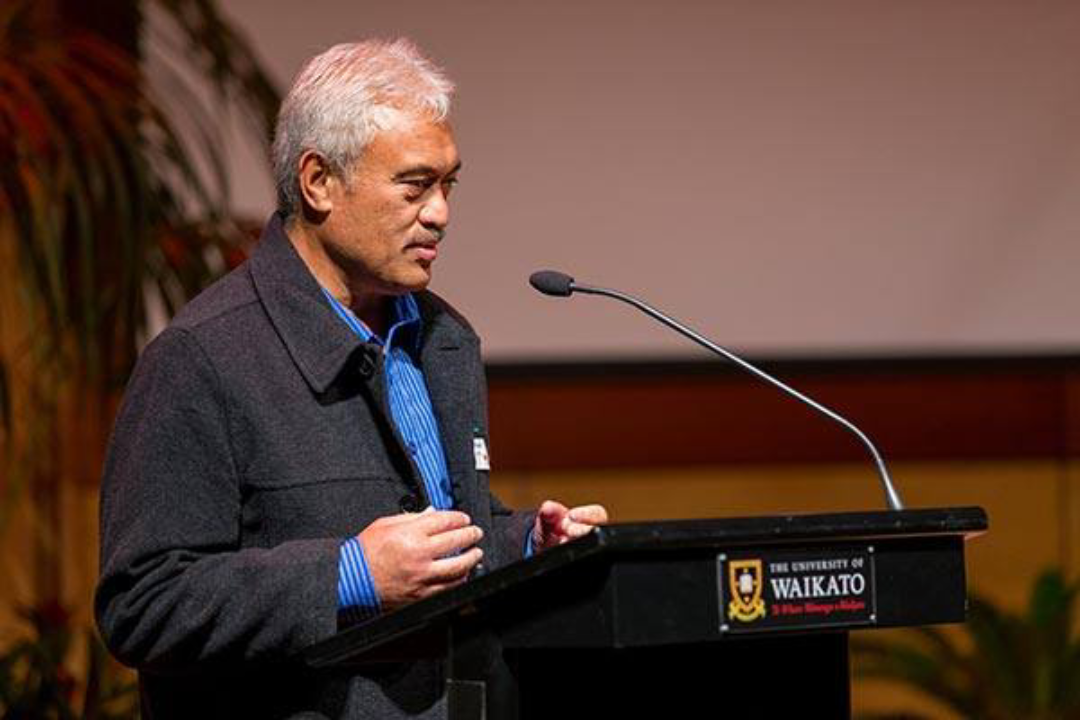
University of Waikato alumnus Malcolm Johns is the Chief Executive of Christchurch International Airport
Malcolm Johns, Chief Executive of Christchurch International Airport, came to the University of Waikato for a good time, and he had that, but he also graduated with a Bachelor of Management Studies (BMS) and learned a lot about himself as he completed his four-year degree.
Malcolm’s a strategic thinker and a planner who’s committed to digitalisation and sustainability. Since 2014 when he began as CE, Christchurch Airport has flourished through natural disasters, terror attacks and a pandemic. “The last decade has made us major-event recovery specialists,” Malcolm says, and what he and his staff have achieved in that time is being admired and mirrored all over the world.
Not bad for a man who says he was never particularly smart at school and who came to university because a lot of his classmates at Waihi College were heading to Waikato. He majored in marketing and accounting, choosing papers that didn’t have lectures on a Friday, because that was his self-imposed golf day.
“The BMS opened my eyes to the wonderful, exciting world of management,” he says. “We had guest speakers, often former students, who were doing amazing things all over the world, and I was energised by that.”
Recently Malcolm returned to the University as a guest to talk to MBA students about his career and leading through major events. “I told them the three best things I gained from university were that I met my wife, lowered my golf handicap, and in my second year I learned I was dyslexic. It was a revelation.”
Initially he was devasted by the diagnosis, first suspected by one of his marketing lecturers. But it explained why Malcolm had trouble reading and doing exams. “Discovering I was dyslexic unlocked one of my greatest gifts. People like me think in pictures, and pictures have a thousand words in them! It unlocked the ability to see things in images, use lots of complex information and to explain things simply.”
That ability to tell an engaging story from a team and stakeholder perspective has underpinned Malcolm’s leadership journey. He’s worked in hotels, for the Mt Cook Group, and with a friend who built a tourism business in Vancouver. He says it was when he hit his 30s that he started to think seriously about what a career might look like.
He was completing a six-month contract with InterCity Group when they asked him to stay on as CE. “I said if I could create a five-year strategy for the company and implement it, I would stay. It was only then that I finally understood what a career was, that I’d have to spend some time shaping it.” That was when he began working with career coach Chris Johnson. It was a deliberate career move to join Christchurch Airport.
Really, post-earthquake he had a blank page; a freedom to do things most businesses never get – to recover, reimagine and reposition. “With major events, you’re suddenly dislocated from your BAU; you need to think creatively, use your resources differently. It’s been an amazing, accelerated growth journey.”
Alongside setting passenger growth records, the airport has created about $1b in shareholder value in the past eight years, lifting market value to over $2.5b.
Sustainability is embedded into the company’s strategic framework and values. The team benchmarks itself against the best 27 airports from around the world and is performing well above the global average in the areas of water, energy and waste. An aggressive decarbonisation programme reduced scope 1 emissions by 90%. Christchurch is the first airport in the world to reach the highest level of decarbonisation, first in New Zealand to become carbon neutral and in 2022, Christchurch Aiport became climate positive. The team is now consulting to New York City airports, Perth and Newcastle in Australia and Bristol in the UK on their decarbonisation programmes.
Digitisation has also been a key part of the airport’s growth strategy. “If we can digitise, we will,” Malcolm says. The airport’s energy system is run through Artificial Intelligence and its horizontal infrastructure has sensors managed by software that notifies staff by text if there’s an issue that needs immediate sorting.
Malcolm is on the board of the Sustainable Business Council and as one of three prime-ministerial appointments on the APEC Business Advisory Council, he led the 21-country working group on climate change. “I’m deeply passionate about climate change,” he says. “Not just for my business, but championing it at national and international level too.”
In March 2023, Malcolm will commence the role of Chief Executive for Genesis Energy.



